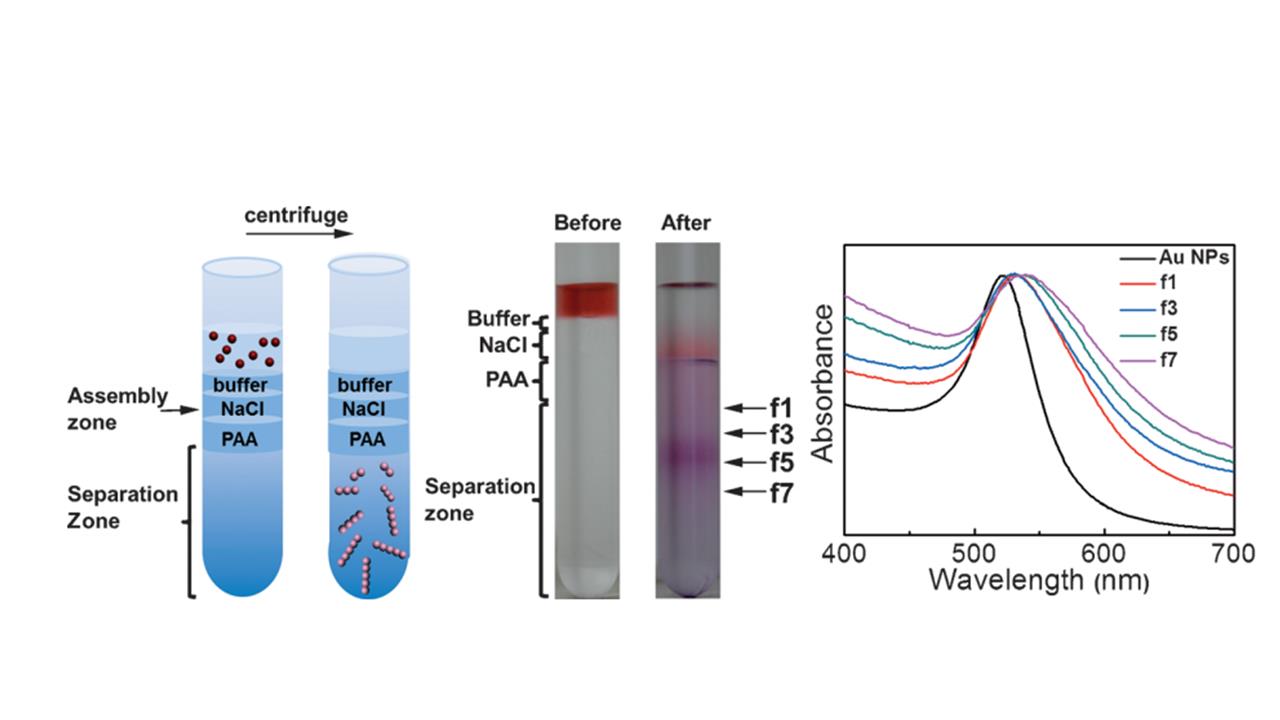
ABSTRACT: Self-assembly of gold nanoparticles into one-dimensional(1D) nanostructures with finite primary units was achieved by introducing a thin salt (NaCl) solution layer into density gradient before centrifugation. The electrostatic interactions between Au nanoparticles would be affected and cause 1D assembly upon passing through the salt layer. A negatively charged polymer such as poly(acrylic acid) was used as an encapsulation/stabilization layer to help the formation of 1D Au assemblies, which were subsequently sorted according to unit numbers at succeeding separation zones. A centrifugal field was introduced as the external field to overcome the random Brownian motion of NPs and benefit the assembly effect. Such a facile “one-tube synthesis” approach couples assembly and separation in one centrifuge tube by centrifuging once. The method can be tuned by changing the concentration of interference salt layer, encapsulation layer, and centrifugation rate. Furthermore, positively charged fluorescent polymers such as perylenediimide-poly(N,N-diethylaminoethyl methacrylate) could encapsulate the assemblies to give tunable fluorescence properties.
